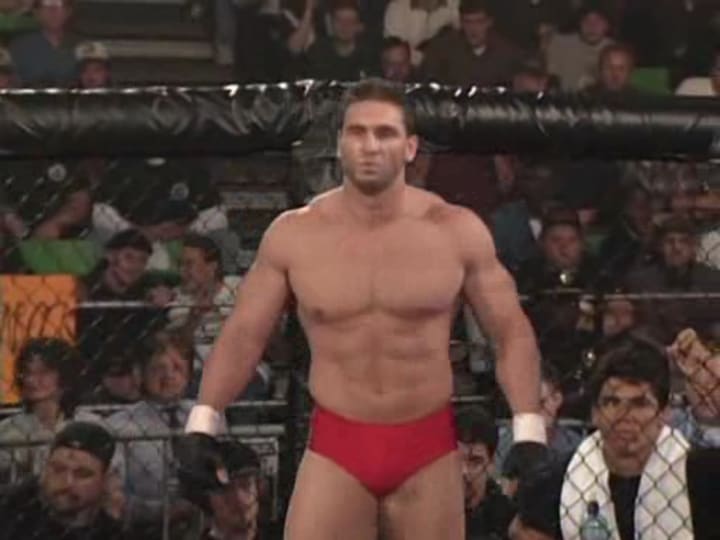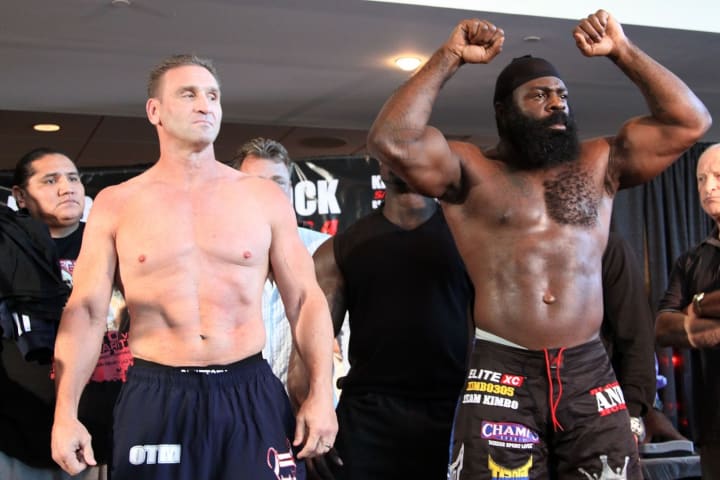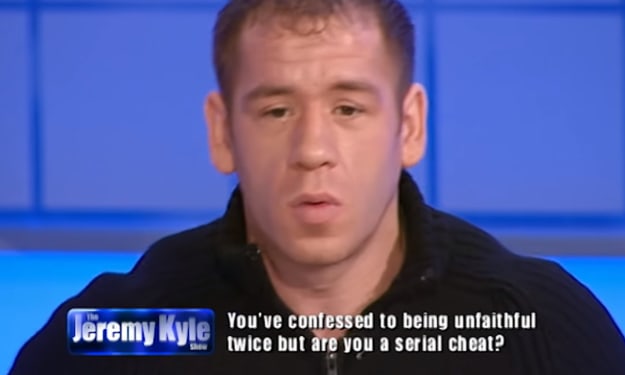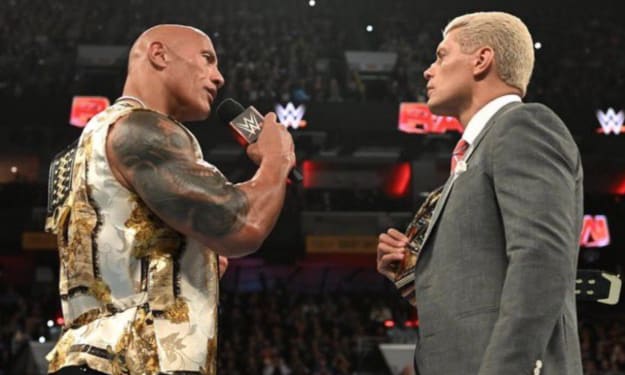
One of my all time favourite fighters in the sport of mixed martial arts (MMA) has to be Brazilian Royce Gracie. The original 'Ultimate Fighting Championship' happened in 1993 but I was about 23 years old when I first saw it, which was back in 2009. The sport of MMA had came from fringe sport to mainstream attraction by then, but it didn't take away from the magnitude of Royce Gracie's achievements that night in 1993. On the same evening, Gracie had defeated a pro boxer, a shoot fighter, and a kickboxer. Still to this day I am amazed by the fighting prowess of the man, who originally had a submission based style, he only real struck his opponent when he was on the ground. You can probably imagine then how disappointed I was when my hero tested positive for Nandrolone (May 8, 2007) after an Elite XC bout with rival Kazushi Sakuraba.
Why would a Brazilian Jiujitsu expert, who had effortlessly defeated people twice the size of him throughout his career need performance enhancing drugs?
Naive of me to think like that, but despite this I tried not to let it tarnish the man's legend. It still takes a lot to get into a ring or an octagon to defeat an opponent in mortal combat. Yet we as a culture and as combat sports fans seem to be getting more and more accustomed to the use of performance enhancing drugs (PEDs) in our sport of MMA; why is that?
Bigger, Faster, Stronger?

Royce Gracie in his prime fighting Dan 'The Beast' Severn.
It could be 'hero worship' like stated above by myself; the record books say Royce Gracie won three UFC tournaments in a row defeating nine opponents, three on each night. It's an advantage that Royce is quite humble, which makes him more likeable, and there's nothing physical about him that would suggest he was taking something at the time. He also fought in an era where 'headbutts,' foot stomps, and soccer kicks were legal in the United States so his feats were quite incredible. If there was PED abuse it certainly wasn't evident—not for someone like Royce anyway.
World's Most Dangerous Man?

Ken Shamrock has been out spoken on shows like MMA Today about steroids.
Ken Shamrock was always going to be marketable when it came to professional fighting. Although Shamrock never won an elimination tournament in the Ultimate Fighting Championship, he had won various 'super fights' and was already a champion in the sport of 'Pancrase.' His skill set was that of a 'shoot fighter,' a combination of striking and grappling and his heavily muscled physique made him very physically imposing. Shamrock realised there wasn't much money in the early days of fighting and took his 'stock' to the theatre of professional wrestling. Is marketability purely based on media attention?
It's definitely worth thinking about; although Ken had not been caught doing anything in the dark ages of MMA, WWE had a known steroid culture. Yet by entering this market, Ken appeals to a new type of fan who then relate to his theatrical performance. In turn when Ken re-enters the world of professional fighting, he brings these fans over with him. So what happens when Shamrock does get caught taking something he shouldn't be? After the millennium, mixed martial arts was more monitored in the United States. Shamrock's UFC career has been over for over a decade now but his celebrity still carries weight. Despite crushing losses to Rich Franklin and Tito Ortiz, he could still top the bill of a fight card. Probably due to his appearance on season 3 of the 'Ultimate Fighter.'
Yet on numerous occasions he has tested positive for PEDs. Following his first victory in over five years against huge Ross Clifton at heavyweight, he tested positive for three anabolic steroids. These were Norandrosterone, Noretiocholanolone, and Stanozolol; Shamrock was fined 2500 dollars and although the media reported his cheating, his stock hardly plummeted. Why is it then so accepted by fans and media? People continue to pay to watch fighters who have been caught cheating in the past. The simple answer is this: money.
When a fighter has such a high profile, huge companies such as WWE have marketed their television personality or they are yet to be convincingly beaten. Their transgressions can be swept under the rug for a cold hard earned dollar. There's a saying in the United Kingdom where professional football (soccer) is concerned: 'Football was created by the poor and stolen by the rich.'
'Roided Double Header?

Two superstars Shamrock and Kimbo Slice have regrettably tested positive for steroids.
If the people promoting the event can look past the transgression, then you better believe the fans are going to look past it. The casual fan isn't going to attend an event just watch two clean fighters exchange blows. The media has such influence as well that these 'cheating' fighters' can be heavily promoted despite any wrong doing. Ken Shamrock was still popular enough to be booked in for a headliner against the late Kevin Ferguson (Kimbo Slice.)
I'm pretty sure that would have been a big payday for Mr Shamrock, another decent sized purse would be double heading with Kimbo Slice's match with 'street rival' Dada 3000 against long time rival Royce Gracie—proof again that any wrong doing on Gracie's part was not affecting his star value. Kimbo won an exciting if amateurish slugfest while Ken never adhered to mindset of protect yourself at all times. While complaining about a groin shot the referee never saw, Gracie capitalised with striking. It was obvious to see who had grown as a martial artist, Gracie would never have dreamed of striking with Ken on the feet back in the nineties. There was a groin strike but Ken's stupidity cost him the fight, not the blow beneath the belt; the irony of this loss, Shamrock tested positive for PEDs again. Two PEDs to be precise, nandrolone and methadone (the latter used to detoxify from a drug dependency).
Yet he wasn't alone as main event star on the Bellator 149 card Kimbo Slice tested positive for nandrolone as well. Bellator took place in Texas for the event and both fighters were expected to be fined 5000 dollars and receive a 90 day suspension. Do we as fans just expect our heroes to do it, or are these transgressions just not widely reported?
This would be a sensible tactic by both the promotion and the fighter who would obviously want to save face. You can imagine the world of mixed martial arts media outlets to be quite tribal as well. Ariel Hewani learnt the hard way what happens when you upset Dana White when he was almost blacklisted from attending a UFC event.
The Next 'Big Thing'

A bigger transgression than Brock's drug use is his suit and cowboy boots combination.
If you think about this article so far, I've only discussed fighters who are way past their primes and have been able to make a substantial wage despite their wrong doings. The current UFC, now drug monitored by USADA and additional rules added to make it a more sport contest, makes millions of dollars. Yet it's clear that USADA only imposes itself on fighters if they're not one of the mega stars the UFC promotion promotes. This was clear recently when Brock Lesnar was invited to watch UFC 226 and on Daniel Cormier winning the main event, invited into the cage. Brock Lesnar literally took the UFC's money and ran, appearing as one of the headliners for UFC 200 against Mark Hunt. What makes Lesnar's doping worse is that he tested positive before the fight commenced. His body contained two substances, Clomiphene and 4-hydroxyclomiphene. The first is supposed to be used closely with steroids and the second as an anti-oestrogen. Mark Hunt subsequently sued the UFC as they still allowed the fight to happen and it was Hunt's third opponent who had tested positive for a banned substance. The other two opponents were again heavyweight superstars, Frank Mir and Antonio 'Big Foot' Silva. Yet there was Brock Lesnar is the crowd, being allowed to promote a possible fight with 'DC.'
Who are the fools here? Is it us, the fans that dismiss such drug abuse and hold these said superstars in such high regard?
Or is it the promotion and fighters who make huge amounts of money even though they are blatantly cheating?
It's up to you as the fan to decide that. I know personally I'm not looking forward to Jon Jones' return. If the fans educate themselves and appreciate really fair spectacle such as the likes of Bisping v Rockhold, I think we can again hold the power over who gets paid properly in this sport of MMA. Yet would we sacrifice some of our entertainment value just to watch two fighters trade blows, as I said personally I still hold Royce Gracie in high regard.
Clean Fight

Before this fight it was particularly highlighted that both Bisping and Rockhold were clean fighters.
Maybe as fans we need to look past victory and understand that every bout is different. Michael Bisping was knocked unconscious by an aggressive Dan Henderson initially and then in the rematch defeated him. The irony is that 'Hendo' tested positive for a banned substance after the defeat, which shows that you do need more than a PED to secure victory. I do believe this is why the UFC push guys like Damien Maia who may not have such fan friendly styles, but exhibit such good technique past the physical and tangible qualities.
I believe it was UFC featherweight champion Max Holloway who said, "If there ain't no drama, there ain't no fight."
Despite any wrongdoing, mixed martial arts is there to be enjoyed, but I do believe the consequences do need to be higher, especially for superstars like Lesnar for dipping into an illicit pharmacy.





Comments
There are no comments for this story
Be the first to respond and start the conversation.